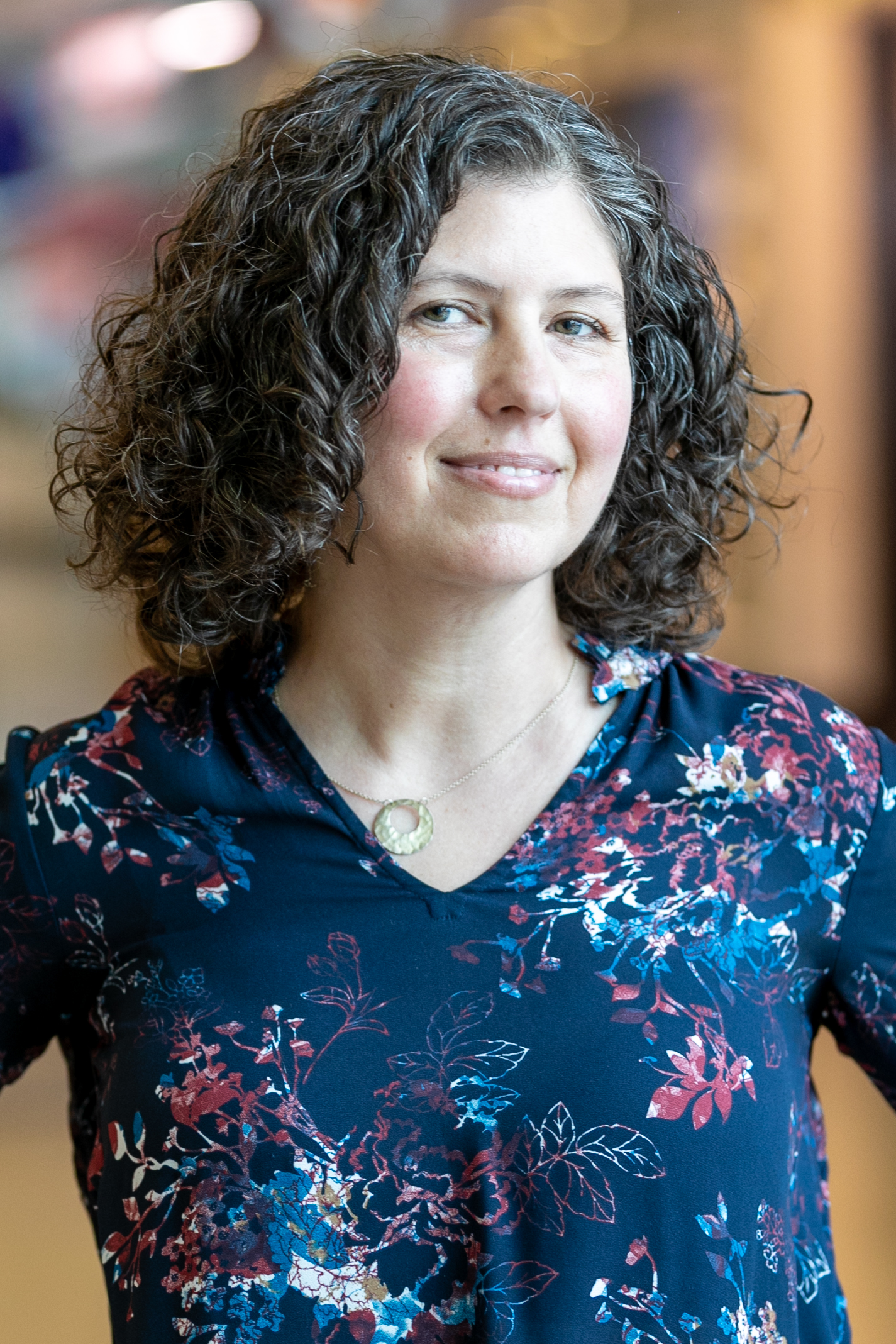Meet Jessica Noon, AICP, LEED AP, ENV, SP, Airport Sustainability Manager, Capital Development

Jessica Noon is the new Sustainability Program Manager for the Capital Development program at Philadelphia International Airport.
Jessica, thanks so much for agreeing to talk about your role in the Capital Development program!
Tell us about why it’s so important now, more than ever, to address sustainability and incorporate sustainable practices into the development going on here, at the Airport.
There is no time better than the present to protect our natural resources and plan for a sustainable future – something the Airport and our partners have been doing for years now. However, the current moment presents a prime opportunity for the Airport to chart its path as a leader in sustainability, and to work with airlines, concessions, city leadership and other motivated partners to set and achieve ambitious sustainability goals.
The impacts of climate change and ecological degradation are growing more apparent daily, and the public is becoming increasingly informed and concerned about environmental issues. We are seeing political and corporate voices prioritizing climate change, with even airlines making commitments to reduce or eliminate carbon emissions. Across the globe, airports are greening their operations, so there is a lot of exciting work and research from which we can learn. Public funds for sustainable infrastructure are also increasing, as we have seen in the recent infrastructure bill. All of these trends make this a crucial moment for us to expand airport sustainability efforts.
In addition to doing the right thing to protect our planet for future generations, integrating sustainability into airport operations is a smart fiscal decision. Preparing for climate change means that our facilities will be less susceptible to sea level rise and intense storms. By setting an example as a pioneer of sustainability, PHL can become more competitive when seeking federal funds. Refining our waste stream can help us prepare for higher future landfill fees. There is little doubt that regulations on carbon emissions and other pollution will continue to increase, and, as a sustainable airport, we will be ahead of the game when those new requirements arise.
Sustainability seems to cover so many areas – air quality, water quality, climate change, recycling. Where do you focus most of your time and energy these days?
The Sustainability team at PHL is truly doing it all! We are integrating sustainability into our capital projects whenever possible – utilizing recycled materials, prioritizing energy efficiency, considering climate change impacts and incorporating renewable energy. We have a solar farm designed for Northeast Philadelphia Airport and are studying opportunities for solar power generation at PHL. We are working to reduce our own carbon footprint by retrofitting the terminal with LED lights and partnering with airlines to convert to electric ground support equipment, install electric charging stations and replace diesel-powered preconditioned air units with electric models. We manage the airport’s recycling program and are investigating ways to increase our waste diversion rate, so we are sending less material to the landfill, all while staying on top of environmental regulations, noise management and air quality issues.
So far, my focus has really been on getting up to speed on all the work that is currently underway, and helping to facilitate our two long term plans, the Sustainability Management Plan and the Climate Action Resiliency Plan, which will guide our work in the coming years. I am also working on a strategy for the Airport to track and reduce our carbon emissions as part of the Airport Carbon Accreditation program, helping some of our capital projects meet environmental certification requirements, and putting together an annual report for the sustainability program for 2021 – all in collaboration with my amazing colleagues in the Sustainability team and the Capital Development Group, of course.
What are some things the Airport is doing to be a good neighbor?
Many of the efforts we undertake to reduce carbon emissions also reduce harmful air pollutants such as nitrous oxides, volatile organic compounds (VOCs) and particulate matter that cause respiratory issues, which is particularly important in Philadelphia since we experience air quality issues. When we replace diesel or gas-powered equipment and vehicles with electric models, we are helping improve air quality at the airport and in nearby communities. PHL has a robust noise management effort where we track noise events and respond to community concerns regarding noise impacts from airport operations. We also work closely with the City of Philadelphia to support citywide climate change resiliency and environmental efforts.
What programs does the Airport use to plan and execute sustainable projects at the airport?
At the moment, the Sustainability team is developing a number of important plans that will help guide our program going forward: Sustainability Management Plan, Climate Adaptation and Resiliency Plan; Airport Master Plan Update; and the Vehicle and Equipment Electrification Strategic Plan. These initiatives have brought together staff from across the DOA to prioritize sustainability strategies. We recently updated our capital project design standards to integrate green approaches and require that new construction and renovation projects acquire LEED (Leadership in Energy and Environmental Design) Silver certification or better if feasible. We utilize Envision, a certification program for infrastructure, to prioritize sustainability in our airfield projects and ParkSmart Certification for parking projects.
Do you have a vision for the program? What is on your wish list?
My first priority for PHL is resilience to climate change: this is not just an option but a necessity to the long-term success of the airport. In addition, I am excited to lead the charge to significantly reduce our greenhouse gas emissions, so we are not just preparing for climate change effects but helping to prevent climate change. I would also like to see us produce more of our own power through solar panels and other renewable energy technologies, and pilot sustainable materials such as carbon-capturing concrete and porous pavement. Last, I hope to maximize our waste diversion rates with creative approaches – I would love to develop a program to compost food waste here at the airport.
What lessons will you take from Philadelphia Water as you begin your new role at the Airport?
My experience at the Water Department has definitely helped me jump into the capital project management and budgeting processes at DOA, and my work on stormwater management and flood mitigation gives me a unique perspective on our climate resiliency work. The best lessons I have learned however are about how to integrate green approaches into capital projects and infrastructure planning, and how to maximize partnerships to move large-scale environmental programs forward. All of these require patience, diligence, and generous amounts of communication and collaboration, all of which I hope to bring to my new role.
What is one thing that you think travelers would be interested to know as they move through the Airport, related to sustainability?
As a PHL passenger myself, I think travelers would be very interested to hear about our sustainability program overall – energy efficiency efforts, the solar power farm, electric charging stations for ground support equipment and personal vehicles, carbon emissions reduction work, and more. Selfishly, I would also like them to know more about how to recycle properly at the airport and help us avoid liquid contamination of our recycling stream – a major challenge to efficient recycling operations.
Thanks for all you do, Jessica!
We wish you much success!





 Meet Api Appulingam, Chief Development Officer, Capital Development.
Meet Api Appulingam, Chief Development Officer, Capital Development.